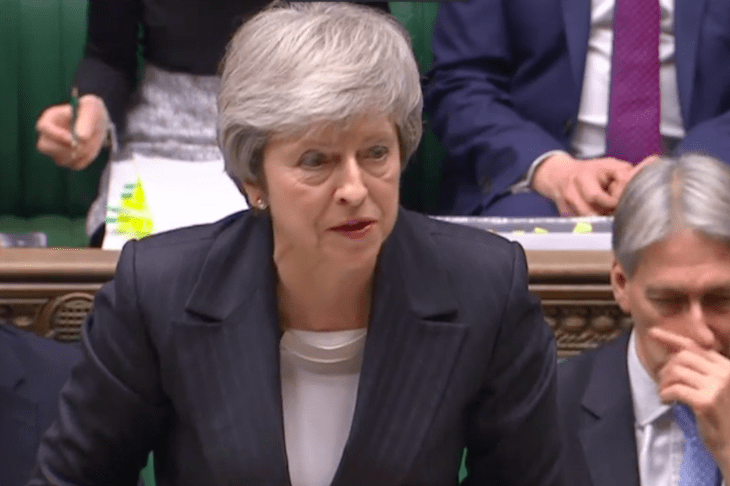Huge ructions at PMQs. Ian Blackford, of the SNP, said Mrs May had been ‘misleading the house inadvertently or otherwise’ over her EU agreement. Instant panic. Roars of outrage at the suggestion that the prime minister had lied. Mr Speaker snapped to his feet. The house paused while he delivered his ruling which centred on two adverbs.
He revealed that when accusing the PM of fibbing it’s advisable to say that it was done ‘inadvertently’. But to add the phrase ‘or otherwise’ suggests that Mrs May tells lies as a matter of policy. Surely not!
‘There must be no imputation of dishonour,’ said Mr Bercow, clearly enjoying the semantic kerfuffle and his position at its centre.
Mr Blackford tried again. The PM had been misleading the house ‘perhaps inadvertently,’ he said. More uproar. Another scolding from the Chair. The word ‘perhaps’ was out of order. At his third attempt Mr Blackford dropped the ‘perhaps’ and said the PM had been misleading the house in a state of blissful ignorance.
From this we learned that it’s permissible for the prime minister to lie to MPs provided she’s merely passing on lies told to her elsewhere, and which she has been too slow-witted to spot. It seems odd that parliament should tolerate this level of gullibility in a prime minister.
Mrs May contributed to the crisis of trust by making several statements today which make sense only in their negative form.
Asked what would happen if her deal fails next week, she said,
‘I will [not] listen to colleagues’.
Asked about the economic consequences of her deal she said,
‘This is [not] the best deal available’.
Asked about concealing the nature of the deal, she said,
‘The 34-page document on Monday set out the legal position [not] very clearly’.
Her truest statement today was this. ‘The deal enables us to continue to work for frictionless trade at the border.’ But what an embarrassing admission. Her ‘frictionless trade’ red-line has been water-cannoned off the agreement by the de facto Brexit secretary, Michel Barnier. She might as well create him Baron Barnier and let him join the cabinet from the lords.
Conservative Paul Scully, trying to be helpful, asked Mrs May to explain why the EU won’t implement the backstop.
Because, she said, it means no more cash to Brussels. And from their viewpoint, ‘it’s not an attractive place to put the UK’. Brexiteers won’t like the phrase ‘put the UK’. Even in 2020, four years after the referendum, Brussels will still have the power to ‘put’ the UK in a place that Mrs May believes is ‘not attractive’ to the EU.
But who told her it’s not attractive to the EU? The EU.
The DUP’s Gregory Campbell brought up the hard border in Ireland which he said was a physical and political impossibility. (He might have added that the Taoiseach specifically ruled it out at a session of the Irish parliament attended by Jean-Claude Juncker.)
‘Why has she allowed that,’ he said, ‘to be used as a negotiating ploy by the EU against the UK?’
‘It’s not a negotiating ploy,’ she said – another statement which is accurate only in its negative form. She explained that the backstop gives people an assurance that ‘is beyond’ a mere ‘political assertion’. But who turned ‘the political assertion’ into such a suspicious and untrustworthy instrument?
Politicians.
So the politicians are telling us that because we can’t trust politicians we must enter a permanent customs union which the politicians say is not a customs union and isn’t permanent.
And we’re supposed to believe them.
Terrible day for politics.







Comments